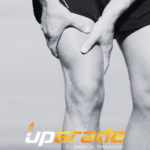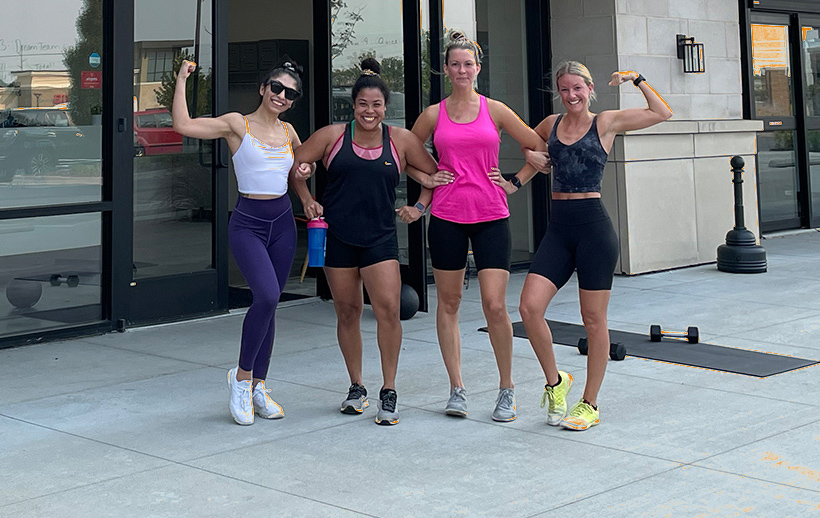 Working out is a critical part of maintaining a healthy lifestyle and getting into better physical shape. But it’s important to know when enough is enough. When you overtrain, your body can’t keep up with the stress you’re putting on it, which can lead to a whole host of problems. Doing a lot of training might seem like a good idea and like a good way to reach goals more quickly. You can overdo it though and it could lead to injury which could keep you from working out at all which will mean you are even farther from your goals than you thought you were. Here are five surefire signs that you might be overtraining.
Working out is a critical part of maintaining a healthy lifestyle and getting into better physical shape. But it’s important to know when enough is enough. When you overtrain, your body can’t keep up with the stress you’re putting on it, which can lead to a whole host of problems. Doing a lot of training might seem like a good idea and like a good way to reach goals more quickly. You can overdo it though and it could lead to injury which could keep you from working out at all which will mean you are even farther from your goals than you thought you were. Here are five surefire signs that you might be overtraining.
5 Signs of Overtraining
Constant Muscle Soreness
If you experience muscle soreness for more than two days after a workout, that could be a sign that your body needs more time to heal and rebuild itself. Muscle soreness should not last more than two days, so if yours does, take some rest days and give your muscles the time they need to recover. This is a sign of overtraining that is often overlooked because people think soreness is a good thing and the result of getting a good workout. Yes and no. If you are new to working out, everything is going to hurt and it might hurt for more than a couple of days. You definitely need to be more careful if you are new to working out because it is new to you, and because things are going to be very sore. You need to take time off when you’re new to make sure you aren’t trying to train sore muscles.
If you have been working out regularly, you are familiar with soreness no doubt. You should be very wary of soreness that lasts more than 2 days. That shouldn’t be happening to you, and it is a sure sign that you could be overtraining.
Low Energy Levels
If your energy levels are consistently low throughout the day despite getting plenty of sleep at night, that’s a sign that you might be overtraining and exhausting yourself too much during workouts. Take some extra rest days so that your body can have time to recharge its batteries and store up energy again.
If you are getting the sleep you should be getting, and you are eating right, energy levels shouldn’t be low during the day. If you are dragging yourself to the gym and you just can’t seem to get through your workouts because you are so tired, then you might need to take a few days off to recharge. There are plenty of gurus out there who say things like no days off or work through the tired and things like that, but they don’t actually know your body. You do. Pay attention to how you are feeling and if you just can’t shake that feeling of exhaustion, take a few days off from the gym to recharge.
Irritability & Mood Changes
If you notice changes in your irritability or mood after particularly hard workouts or weeks where you’ve worked out more than usual, this is another sign that your body needs some recovery time for restorative purposes in order for everything to even out again emotionally. Have you heard of Cortisol? Cortisol is one of the hormones in our body that is responsible for our response to stress. Too much cortisol has significant negative impacts on our bodies like making it more difficult to lose weight, lowering our metabolism, increasing blood pressure and more.
Having too much cortisol is in short, a bad thing. Too much working out can lead to an increase in cortisol levels in our bodies which can lead to problems with mood and other issues. If you are noticing that you are irritable and are working out a lot, it’s a sign of overtraining and you should think about taking a break for a few days. (If you’re feeling irritable or stressed, check out our article on Box Breathing and how it can help you reduce stress)
Frequent Injuries
When we work out too much without taking breaks, our bodies become tired and our muscles become weaker as well, leading us to become more prone to injuries if we don’t take the necessary precautions like using proper form and using lighter weights while we are still in recovery mode from previous workouts or injury-prone periods in general. It’s a real challenge to avoid frequent injuries, especially as we get older. If you are working out you are used to some pain here and there and if you are or were an athlete, you’ve no doubt heard, “no pain, no gain”.
Have you ever paid attention to when a professional athlete gets injured and when they’ve suffered an injury that you have suffered you wonder why they are going to be out of action for so long when you were right back at it? Professional athletes have the benefit of full time and constant medical care and advice from doctors who know exactly how long they should take to heal from an injury. You are not necessarily healed just because you feel better but sometimes, we jump right back to regular workouts as soon as the pain is gone. That can lead to frequent nagging injuries. If you are getting those nagging injuries, be sure to take the time off you need so those injuries get worse.
Loss Of Appetite
Because our bodies are expending so much energy with overtraining sessions, they don’t always feel like eating afterwards. You may be saying to yourself, “Score! That’s what I want!” But be careful, proper nutrition before and after workouts is incredibly important to maintaining health and fitness. Without proper nutrition, all that hard work you are doing working out is not going to help you at all. Make sure you are fueling your body with the right nutrition and if you have been working out more than usual and find yourself not wanting to eat, take a break for a few days to give your body a chance to get back on the right track. While it may sound like a good thing to lose your appetite, it is one of the signs of overtraining and you need to take a break.
Conclusion:
Overtraining puts an intense amount of stress on the body which can lead to both physical and mental exhaustion if it goes unchecked for too long; however, there are several signs which one should look out for such as persistent muscle soreness lasting longer than two days, low energy levels throughout the day, changes in emotional states, frequent injuries, and a lack of appetite. By keeping an eye out for these warning signs, one can ensure that they stay within their healthy limits while avoiding any unnecessary risks associated with over-exercising themselves without adequate rest periods in between sessions. Furthermore, adequate nutrition should also be taken into consideration during times when one feels like they’re pushing their boundaries as well; because without proper fuel available at all times, then it becomes harder for the body to recover properly which may lead one down a path towards further injury eventually. All in all though, staying mindful of these signs of overtraining will help ensure that one never overexerts themselves beyond their limits while still maintaining an overall healthy lifestyle.



